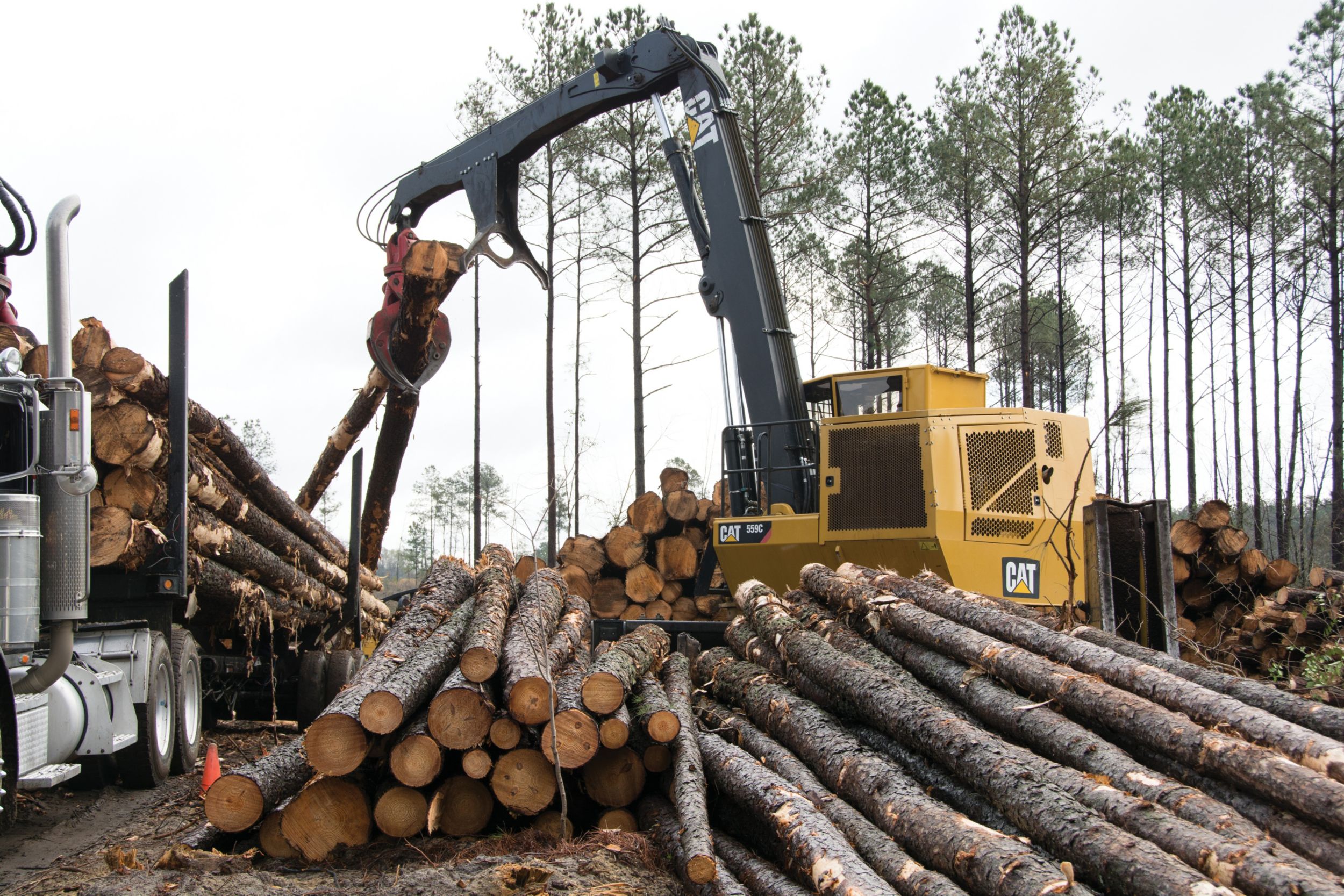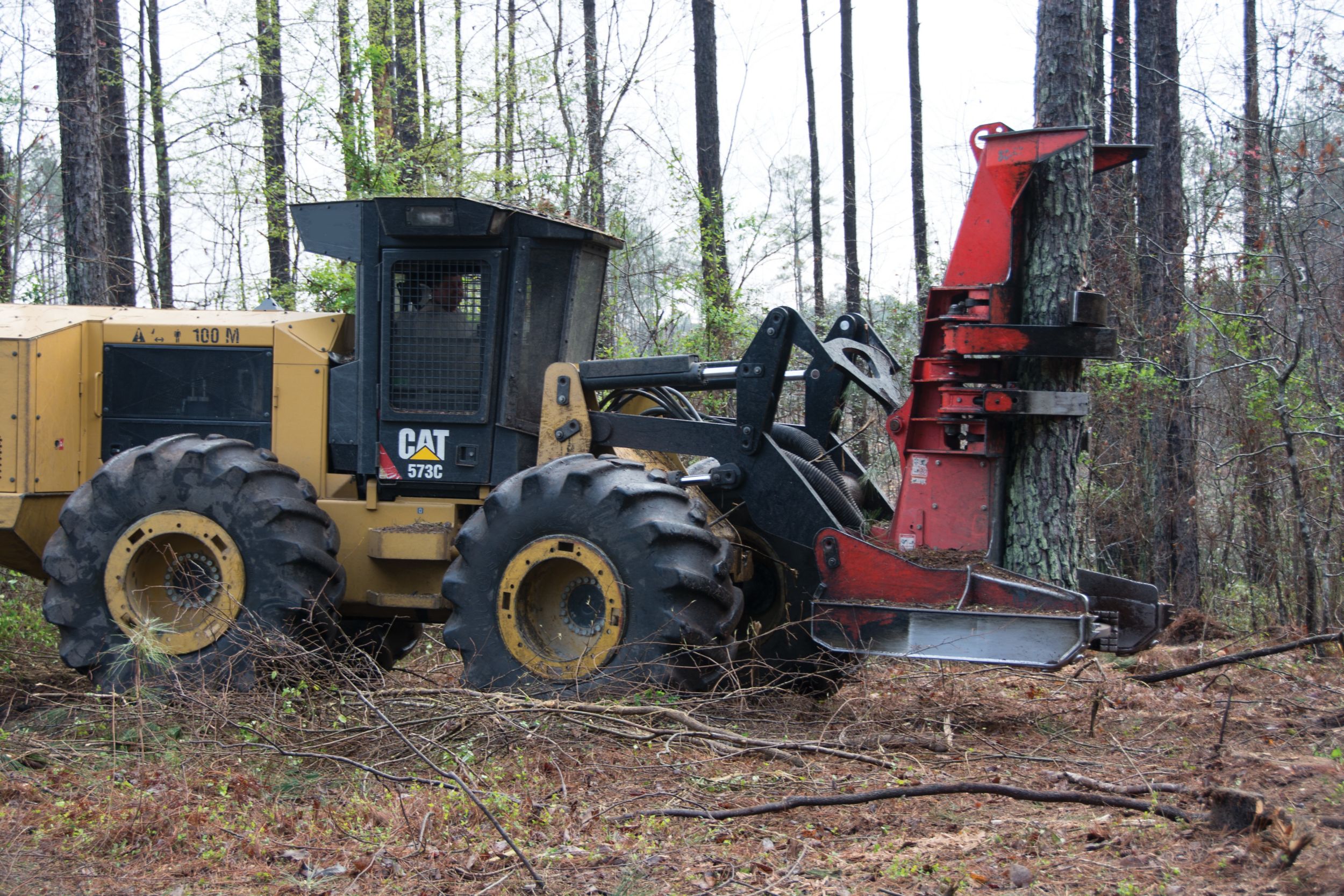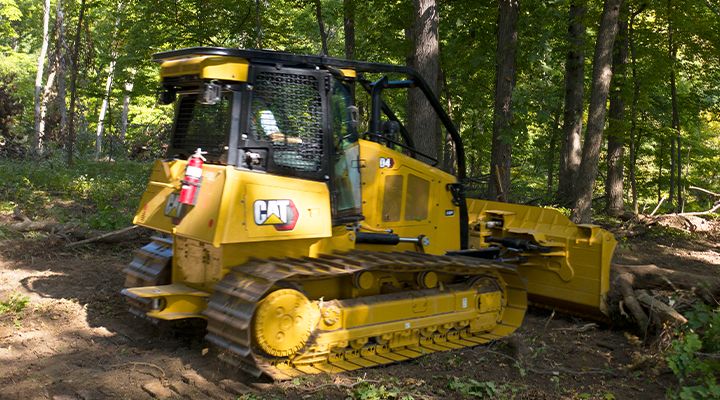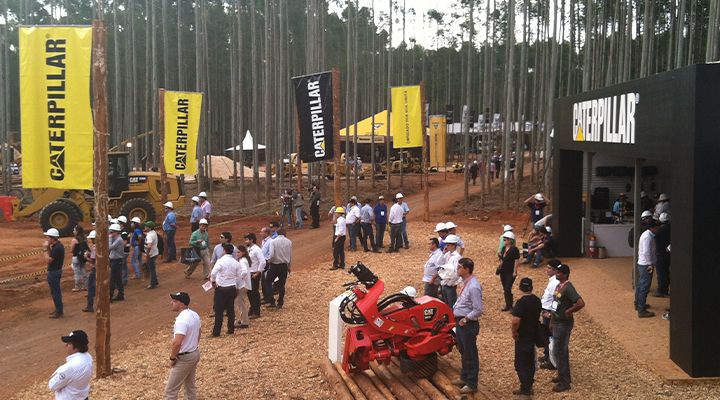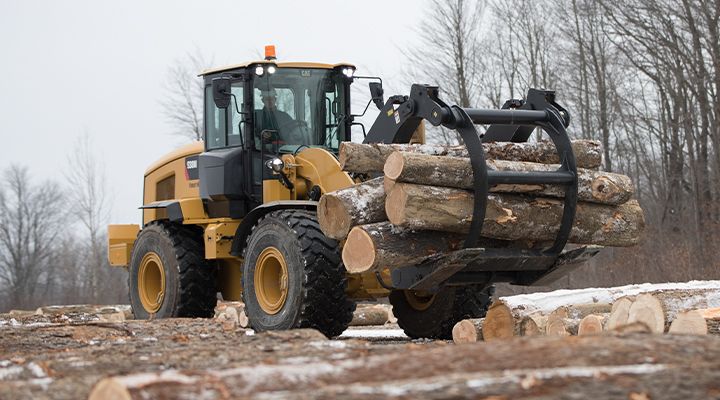

Sign In
Welcome! Sign In to personalize your Cat.com experience
If you already have an existing account with another Cat App, you can use the same account to sign in here
Register Now
One Account. All of Cat.
Your Caterpillar account is the single account you use to log in to select services and applications we offer. Shop for parts and machines online, manage your fleet, go mobile, and more.
Account Information
Site Settings
Security
Flexibility Key to Logging Company's Success
High winds can topple the mightiest of trees. But trees that are flexible and bend with the breeze stand a much better chance of surviving a windstorm than rigid, unbending ones.
This is true in life, as well as the operation of a successful business. Ten years ago that lesson became clear to Gary McClam, owner and president of McClam Logging, Kingstree, South Carolina.
McClam Logging operates two crews. One of the crews feeds a single knuckleboom loader and the other works with two loaders, primarily because that crew does more sorting of material.
That wasn’t the case 10 years ago. The company worked exclusively for one mill, and focused all personnel and equipment on that single contract. When the mill set a 50-load per week quota, McClam either had to sell equipment and work with a smaller crew or split into two crews. He had enough machines and personnel to form two crews, and chose that option. “I’ve been doing it ever since,” McClam says.
Having two crews provides McClam Logging with greater flexibility, enabling the company to work at multiple locations, or concentrate resources at one site if circumstances dictate. For instance, if the weather or site conditions such as mud make work impractical at one location, or a lumber company demands a large amount of a certain type of wood, McClam can focus efforts at one site.
“The other crew is rained out today, so I have two of their trucks working here. We’re able to move more material that way,” he mentions at a recent job. “Working two crews has its advantages.”
To make split crews work, McClam needs to trust his employees to do the work that is required. The crew that largely works without supervision by Gary is the most experienced, and is better suited to make decisions and work independently. “I’ve got a good group of people working for me,” McClam says. “Most of my help has been with me a long time, some of them 27 years.”
Life Lessons
The same year that McClam Logging split into two crews, Gary was diagnosed with throat cancer. He found himself bending, and changing the way that he viewed life and the way he ran his company. He realized that he couldn’t do everything, and needed to delegate some responsibility.
“I don’t let things worry me nearly as much as I used to. It has given me a different perspective on life, and my family. The first ten years that I logged, I was on the road and staying in motels all the time. I was trying to get my feet on the ground. It was a lot of hard work. Sometimes I wish that I would have been home more. I have two grown daughters and grandchildren now, so now I stay close to home.”
He adds, “I’m one of the lucky ones. Ten years later, I’m still alive.”
Logging Continues
And McClam is still working. At a clear-cut of a 200-acre tract, a Cat® 559C Knuckleboom Loader sorted logs into two groups: Those that were 18-inches and above at the butt with 8-inch tops, and logs with 8-inch butts and 5-inch tops. The loader has the capacity to keep pace with an added truck, and the ability to easily lift trees with butts wider than 18 inches.
Approximately 90 percent of the company’s work is clear-cuts. “I do a little bit of thinning, very little,” McClam states. Of 800 truckloads of wood produced at the site, all is pine except for 10 to 15 loads of hardwood. McClam Logging produces a total of 130 truckloads, each weighing 27 to 29 tons, per week.
Deeper in the woods, a Cat 573C Feller Buncher cut down trees, which were transported to the knuckleboom loader by a 535D Skidder and a 525C Skidder. The skidders have the stability and power to pull full loads up the site’s steep and rugged inclines.
McClam has run Cat machines since he entered the logging business in the 1980s, beginning with a 518 Skidder. “I made two pulls with that skidder, and I said, ‘This is the machine for me.’ I have used Cat equipment ever since. What I like about Cat machines — they are very productive and very dependable.”
Cat dealer, Blanchard Machinery, has supported McClam since the first day he pulled a load of pine out of the woods. “Anytime anything happens, they are there for me. They are the best people that I’ve ever dealt with.”
Blanchard Machinery will send a service truck into the woods to keep the fleet on the job. “They don’t put you off. They get it done,” McClam says.
As he stands in the woods overseeing his crew, McClam grows reflective. Nearing 60, he’d like to work another five to seven years, if his health holds up.
The work is hard, and there are long hours, but for McClam there is no better life. “I’ve seen some beautiful country, and met a lot of good people.” he says.
Behind him, the trees sway gently in the breeze, and the work continues.
Farmer strength aids in transition to logging
Farming has always been a tough way to make a living. The days are long, and months of work can be destroyed by a single storm or a night of unseasonable frost. Yet farmers love it. The 1980s were especially tough for farmers, with tens of thousands of family farms forced into bankruptcy.
Gary McClam, owner and president of McClam Logging, Kingstree, South Carolina, worked as a farmer until the 1980s, when he began logging to make ends meet. “I still do a little farming,” he admits. “There’s no better life.”
McClam and his brother-in-law, the late Dewitt McKenzie, started the company that became McClam Logging in 1988. McClam purchased the company outright in 1991.
The company remains a family-owned and operated business. Gary’s wife, Cheryl, works as secretary and keeps all the books. “If it wasn’t for her, I couldn’t do it,” he says.
The couple’s son-in-law, David McGee, runs a knuckleboom loader. David also farms with Gary. “When it’s time for planting, I let him off, and I work the loader for the logging crew. I can run any machine that we have out here. Whatever needs to be done, we do it,” he says.
And that is how things are done at McClam Logging and the family’s farm.
McClam Logging Cat Fleet:
525C Skidder (Three)
535D Skidder
563C Feller Buncher
573C Feller Buncher
559C Knuckleboom Loader




RELATED ARTICLES
You’re here to get ideas to grow your business. Read on for machine insights and expert tips and tricks to get more out of every job.
-
Cat Equipment Helps Logger Achieve Production, Environmental Goals
Cat® equipment helps Oregon-based D&S Logging achieve production and environmental goals.
Learn More -
Busting Stumps As Hard As Iron
For half a century, Patterson & Son has put Cat® dozers to the ultimate test on the boggy jobsites where the firm prepares sustainable tree farms for replanting.
Learn More -
Solutions for Brazil's Rapidly Growing Forestry Industry on Display at ExpoForest
Customers in the Brazilian forestry industry purchase nearly 2,000 machines a year—making Expoforest Brazil 2014 the place to be for Caterpillar and its local dealers.
Learn More -
Want More On The Bottom Line? Start Timing Tasks
Find out how to get a handle on the efficiency of your operation by timing tasks and get tips to improve machine cycle times.
Learn More


